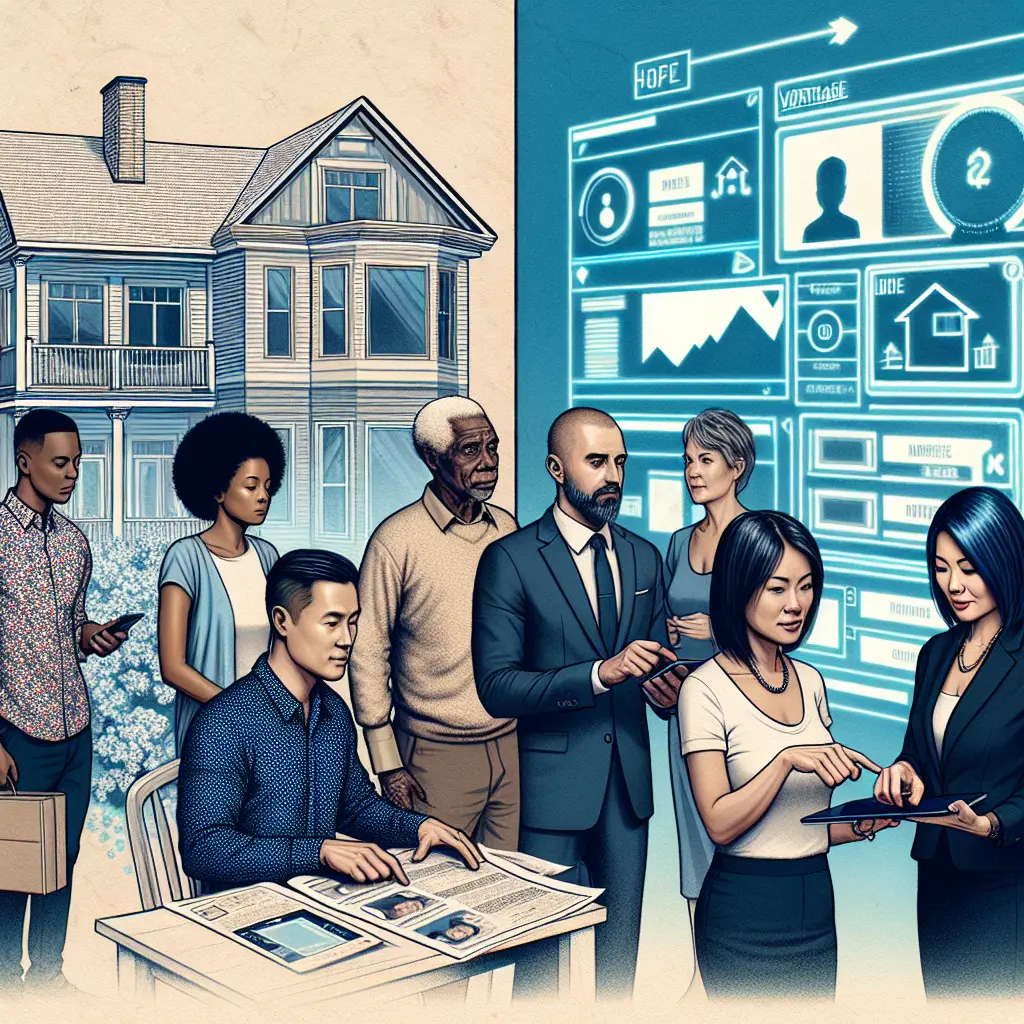
In today’s digital era, the fusion of technology and real estate is not just transforming how we buy homes but revolutionizing the entire experience. From blockchain securing transactions to AI predicting market trends, the home buying process is becoming more streamlined, efficient, and user-friendly. Let’s delve into the various technological innovations reshaping the landscape of home buying and how they impact both buyers and sellers.
The Rise of Home Buying Technology
Digital Real Estate Platforms have become the backbone of the property market, offering comprehensive online property listings that provide potential buyers with a myriad of options at their fingertips. Platforms like Zillow and Realtor.com have enhanced their user interfaces, providing detailed property insights and market trends derived from sophisticated real estate data analytics.
The integration of AI in home buying has further refined these platforms. AI algorithms help in accurately predicting pricing trends, suggesting properties that meet specific user preferences, and even automating customer service through chatbots, thereby personalizing the buyer’s journey.
Virtual Experiences and Online Processes
One of the most significant advancements in real estate innovation is the development of virtual home tours. Amidst global lockdowns, virtual tours have allowed buyers to explore properties from the comfort of their homes. This technology, combined with augmented reality real estate, offers a near-physical tour experience, showcasing everything from room layouts to decor options without physical presence.
Online mortgage applications streamline the financing process, reducing paperwork and saving time. Institutions now offer secure online portals where buyers can submit their documents, which are processed using automated underwriting systems. This efficiency is complemented by e-signing documents for real estate transactions, which accelerates the closing phase without the need for in-person meetings.
Blockchain and IoT: Security and Connectivity
Blockchain in real estate is perhaps one of the most groundbreaking introductions. This technology offers a decentralized verification process for transactions, ensuring transparency and security, reducing fraud, and speeding up transactions by eliminating middlemen.
On another front, IoT in home buying integrates smart home technology into properties, making homes more appealing. Features like smart thermostats, security systems, and automated lighting systems are becoming standard expectations among tech-savvy buyers.
Mobile Accessibility
Real estate mobile apps have seen significant adoption rates, allowing users to search for properties, apply for mortgages, and communicate with agents seamlessly on their smartphones. These apps often integrate features like GPS to show open houses and provide real-time data on neighborhood safety scores and local school ratings.
Transformative Stories in Real Estate
The narrative of technological transformation in real estate is echoed in individual stories across the globe:
A real estate investor emphasized the importance of choosing the right properties based on local demand and ROI potential after learning from her initial mistakes. Her criteria have helped many first-time investors make informed decisions (source).
In New Jersey, a $500 million initiative aims to transform the state into an AI hub, which will likely influence local real estate markets by attracting tech companies and professionals (source).
A 26-year-old in San Francisco utilized digital platforms extensively to understand market trends and successfully invest in one of the priciest markets in the U.S. (source).
Innovations like customizable 3D-printed homes are becoming the next big status symbol in real estate, combining luxury with personalization (source).
A young real estate agent leveraged social media platforms to create immersive content and virtual tours, significantly increasing property sales (source).
A seasoned investor shared her journey of scaling up to 36 homes and the strategic shift towards selling them to maintain her mental health and financial freedom (source).
Ken Griffin’s extravagant purchases, including a luxurious St. Tropez home, reflect the unique intersection of wealth and exclusive real estate (source).
The future of office buildings could see designs that accommodate hybrid working models, potentially increasing demand for versatile commercial spaces (source).
Strategies for wealthy Americans to pass down real estate to their children without disputes have become a hot topic among financial and legal advisors (source).
The sale of a Congressional nuclear bunker points to how unique properties are marketed and sold through niche real estate platforms (source).
Conclusion
The integration of technology in the home buying process is not just a trend but a significant evolution that is here to stay. From the automation of mundane tasks to the creation of immersive virtual experiences and the enhancement of security via blockchain, technology makes real estate transactions more accessible, faster, and more transparent. As we continue to witness innovations like AI and IoT making deeper inroads into this sector, the dream of owning a home becomes more attainable and less stressful for millions worldwide.
Thank you for joining me on this exploration of tech-driven home buying. Until next time, keep embracing technology to make smarter real estate decisions.
— Felicia Green